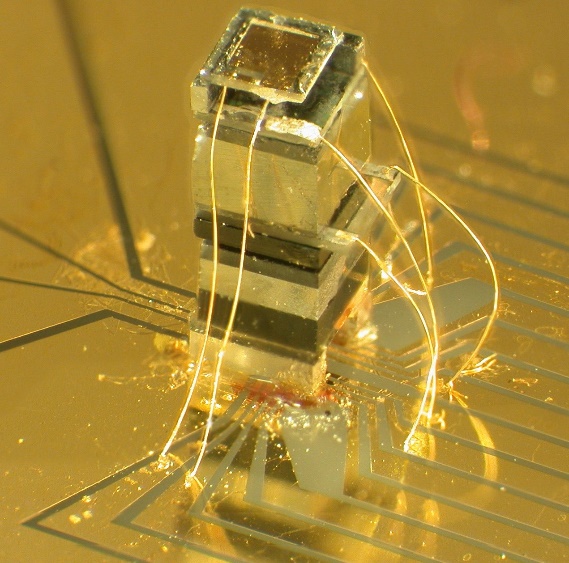Chip-scale Atomic Devices: Miniature Precision Instruments using Atoms, Lasers and Silicon Micromachining

There is currently a strong movement worldwide toward portable, battery operated, wirelessly connected devices such as GPS receivers, cellular telephones and laptop computers and tablets. This new generation of electronics enables vast new capability, but also comes with new challenges such as bandwidth limitations, sensitivity to jamming and reduced access to calibration. A new generation of miniature, low-power, low-cost precision instruments is being developed at NIST for use in such portable technologies. These include clocks, magnetometers, gyros and wavelength references, all based on precision atomic spectroscopy and using emerging new fabrication capabilities such as microelectromechanical systems and photonics. This talk will describe the design, fabrication and performance of these instruments, as well as touch on several applications to which they are well-suited. Finally, we will speculate on future opportunities for these types of devices such as compact instruments based on laser-cooled atoms and a broader view on highly accurate chip-scale measurements.
Date and Time
Location
Hosts
Registration
Speakers
Dr. John Kitching of NIST, USA
Chip-scale Atomic Devices: Miniature Precision Instruments using Atoms, Lasers and Silicon Micromachining
There is currently a strong movement worldwide toward portable, battery operated, wirelessly connected devices such as GPS receivers, cellular telephones and laptop computers and tablets. This new generation of electronics enables vast new capability, but also comes with new challenges such as bandwidth limitations, sensitivity to jamming and reduced access to calibration. A new generation of miniature, low-power, low-cost precision instruments is being developed at NIST for use in such portable technologies. These include clocks, magnetometers, gyros and wavelength references, all based on precision atomic spectroscopy and using emerging new fabrication capabilities such as microelectromechanical systems and photonics. This talk will describe the design, fabrication and performance of these instruments, as well as touch on several applications to which they are well-suited. Finally, we will speculate on future opportunities for these types of devices such as compact instruments based on laser-cooled atoms and a broader view on highly accurate chip-scale measurements.
Biography:
Dr. John Kitching is the founder and Leader of the Atomic Devices and Instrumentation Group in NIST-Boulder’s Time and Frequency Division. He and his group pioneered the development of chip-scale atomic clocks in the early 2000’s and he continues to develop and investigate new compact, low-power precision instruments and atomic devices. He received his PhD in Applied Physics from the California Institute of Technology in 1995 and has spent the rest of his career as a guest researcher, staff scientist and group leader in the Time and Frequency Division. He is a Fellow of NIST, a Fellow of the American Physical Society and has won numerous awards including the IEEE Sensors Council Technical Achievement Award, the IEEE UFFC I. I. Rabi Award and the Jack Raper Award from the IEEE International Solid-State Circuits Conference.
Email:
Please register for details to join the lecture.


 Add Event to Calendar
Add Event to Calendar